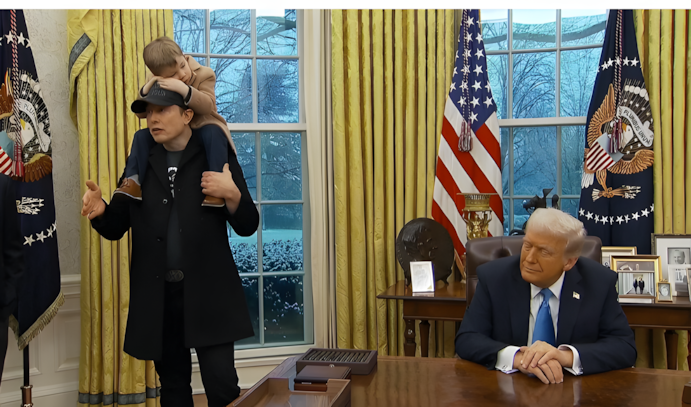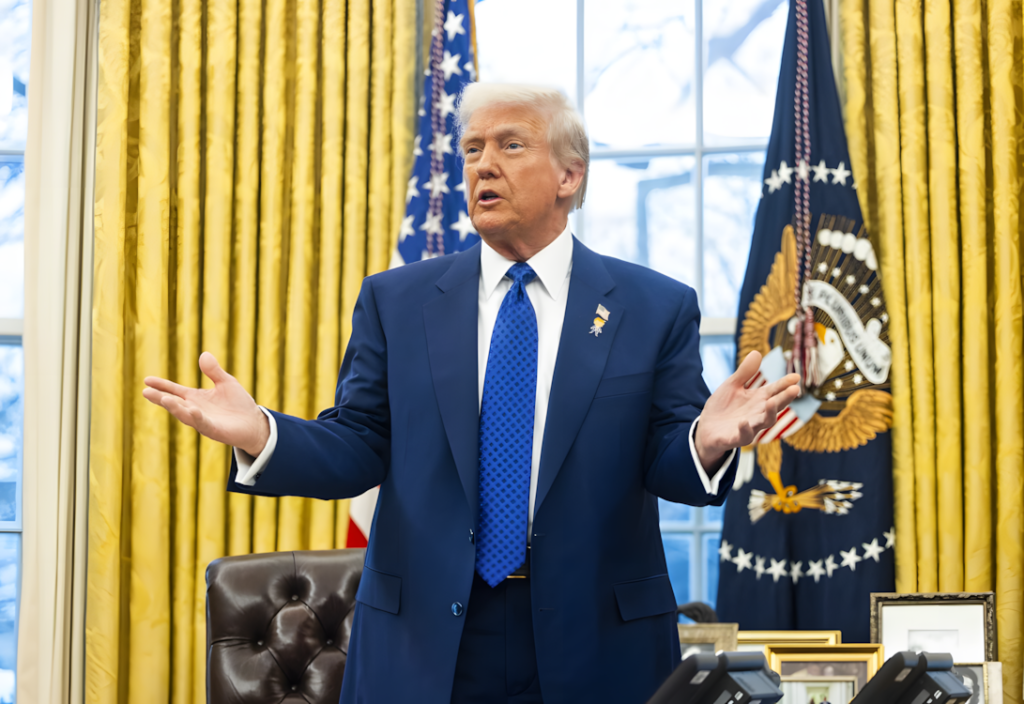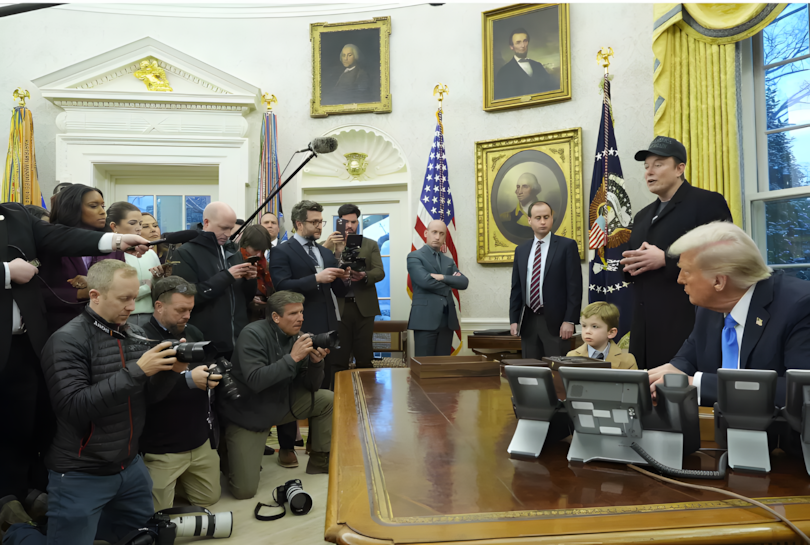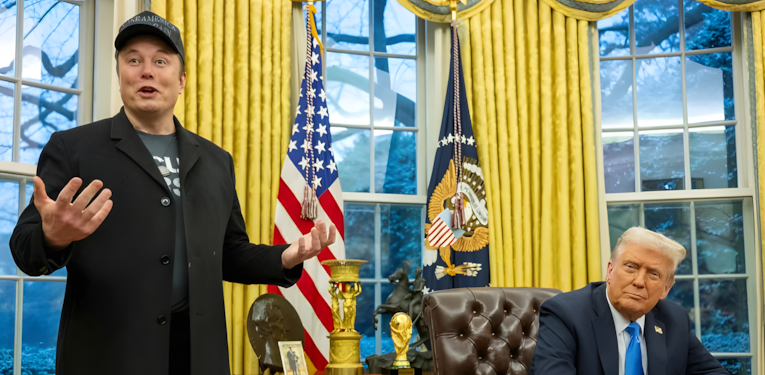In recent months, Elon Musk, the billionaire entrepreneur known for his ventures with Tesla and SpaceX, has taken on a prominent and controversial role within President Donald Trump’s administration. Appointed as the head of the newly established Department of Government Efficiency (DOGE), Musk’s actions have sparked widespread debate and concern. His aggressive approach to restructuring federal agencies, significant budget cuts, and the intertwining of his business interests with governmental functions have led many to question the implications of his influence on American governance.

The Genesis of DOGE and Musk’s Appointment
President Trump, aiming to fulfill his campaign promise of reducing government waste and inefficiency, established DOGE with the mandate to streamline federal operations and cut unnecessary expenditures. In a move that surprised many, Trump appointed Musk to lead this department. During an interview with Fox News’ Sean Hannity, Trump revealed that he sought someone “smarter” than Musk for the position but ultimately concluded that Musk was the most qualified candidate available. Trump praised Musk’s private sector achievements and expressed confidence in his ability to bring about the desired governmental reforms.
Aggressive Overhauls and Budget Cuts
Upon assuming his role, Musk initiated a series of rapid and extensive changes across various federal agencies. Drawing parallels to his cost-cutting measures at Twitter, Musk began by terminating large numbers of federal employees, targeting critical departments such as air safety and nuclear monitoring. These actions were justified by accusations of fraud and inefficiency, although concrete evidence supporting widespread misconduct was not provided. Musk’s overarching goal is to reduce the U.S. deficit by eliminating what he perceives as wasteful and corrupt practices within the government.
In collaboration with President Trump, Musk has set an ambitious target of cutting $1 trillion from the federal budget. This initiative has led to significant reductions in funding for agencies such as the U.S. Agency for International Development (USAID) and the Department of Health and Human Services. Critics argue that these cuts jeopardize essential public services and undermine the foundational functions of the government.

Interplay Between Business Interests and Government Roles
Musk’s dual role as a government official and a business magnate has raised concerns about potential conflicts of interest. Notably, he has overseen the dismantling of regulatory bodies like the Consumer Financial Protection Bureau, actions that could benefit his business ventures, including platforms like X Money Account. While Musk asserts that he has not sought any favors from President Trump and is committed to avoiding conflicts of interest, the overlap between his corporate interests and governmental responsibilities continues to be a point of contention.

Public Perception and Political Dynamics
Musk’s involvement in the Trump administration has elicited mixed reactions from the public and political figures. While some Republicans view his private sector expertise as a valuable asset to governmental reform, recent polls indicate a decline in the number of Republicans who desire Musk to have substantial influence in the administration. A survey from The Economist/YouGov showed a decrease from 47% to 26% in Republicans who want Musk to have “a lot of influence,” suggesting growing skepticism within the party. Democratic activists and organizations have been vocal in their opposition to Musk’s policies. Protests have been organized at congressional offices and Tesla dealerships, aiming to highlight the adverse effects of the budget cuts on health, education, and human services. Prominent figures, including Senator Bernie Sanders, have criticized the administration’s actions, describing them as a shift towards oligarchy and authoritarianism.

Musk’s Political Evolution
Historically, Musk identified as a centrist with libertarian leanings, supporting candidates across the political spectrum. However, his recent actions and affiliations suggest a shift towards right-wing politics. In the 2024 presidential election, Musk emerged as a vocal and financial supporter of Donald Trump, becoming the largest individual donor of the election cycle. This alignment has further fueled debates about his political motivations and the potential implications for democratic institutions.
Constitutional and Ethical Implications
Musk’s unprecedented influence within the executive branch has raised questions about the constitutional and ethical ramifications of his role. His aggressive tactics, including mass layoffs and loyalty tests for civil servants, have been compared to autocratic practices, leading to concerns about the erosion of democratic norms and the potential for unchecked executive power. Legal challenges have been mounted against DOGE’s actions, but court decisions thus far have allowed the department’s initiatives to proceed.

Conclusion
Elon Musk’s tenure as the head of the Department of Government Efficiency represents a significant and contentious chapter in the intersection of private enterprise and public governance. His bold approach to restructuring federal agencies and reducing the national deficit has been lauded by some as a necessary overhaul of a bloated bureaucracy. Conversely, critics argue that his methods undermine essential public services, blur the lines between corporate and governmental interests, and pose a threat to democratic institutions. As Musk continues to wield considerable influence within the Trump administration, the long-term consequences of his actions remain a subject of intense debate and scrutiny.



